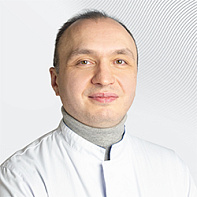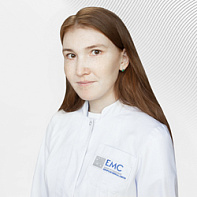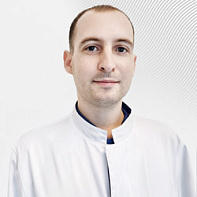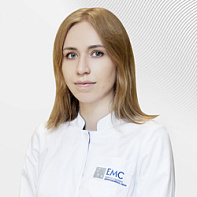Memory impairment
Disorders of memory and higher cognitive functions should be considered if the patient has the following symptoms:
- confusion, confusion when performing daily tasks;
- unusual forgetfulness, including forgetfulness about recent events and people's names;
- speech disorders (difficulty choosing words, difficulty pronouncing words, phrases, difficulty understanding spoken speech);
- difficulties in solving problems that have not previously caused difficulties;
- decreased ability to navigate in space, in familiar terrain (at home, on the street, in the subway, while driving a car);
- increasing dependence on others in everyday life;
- changes in behavior and personality traits: unusual aggressiveness, apathy;
- nonsense;
- disorientation;
- hallucinations.
The severity of memory impairments may vary. According to modern concepts, there are two principal stages:
-
moderate cognitive impairment or MCI (mild cognitive impairment).
- dementia (gross intellectual disability).
The term MCI was first proposed in 1997 by the American neurologist R. Petersen to denote the initial stages of Alzheimer's disease. The criteria for this pathology are as follows:
- The presence of non-severe memory and intelligence disorders according to the patient and/or his immediate environment.
- Signs of deterioration of mental abilities in comparison with the individual norm for a given person, which has occurred recently.
- Objective evidence of cognitive (mental) disorders obtained using special (so-called neuropsychological tests).
- Absence of violations of the patient's usual forms of daily activity. However, there may be difficulties in complex activities.
- There is no dementia (gross intellectual disability)
Further observations have shown that patients who meet the above diagnostic criteria do indeed have an increased risk of developing Alzheimer's disease. However, according to research, Alzheimer's disease is not the inevitable fate of MCI patients. Thus, some of them developed other nosological forms of dementia, while others had stable symptoms for many years.
A more serious memory disorder is dementia. According to the WHO definition, dementia is a syndrome in which memory, thinking, behavior, and the ability to perform daily activities deteriorate. Dementia mainly affects the elderly, but it is not a normal state of aging. Most often, dementia develops as a result of a fairly long, usually long-term, progression of less severe cognitive impairments (for example, MCI). Dementia is one of the main causes of disability and addiction among the elderly worldwide. Dementia has a physical, psychological, social, and economic impact on caregivers, family, and society.
Among the causes leading to gross intellectual disability, the following diseases can be distinguished:
- Alzheimer's disease;
- dementia with Lewy bodies;
- vascular dementia (including after a stroke or as a result of repeated "micro strokes");
- corticobasal degeneration;
- frontotemporal dementia;
- primary progressive aphasia;
- Parkinson's disease with memory impairments;
- normotensive hydrocephalus;
- multiple systemic atrophy;
- moderate cognitive impairment;
- autoimmune and inflammatory encephalopathies;
- non-vascular autoimmune inflammatory meningoencephalopathies;
- Binswanger's disease;
- cerebral autosomal dominant arteriopathy with subcortical infarcts and leukoencephalopathy (CADASIL);
- memory impairment or dementia caused by trauma;
- progressive supranuclear palsy;
- Creutzfeld-Jakob disease;
- cognitive (intellectual) disorders caused by a brain tumor (before and after surgical treatment);
- memory disorder due to anxiety disorders, depression, or sleep disorders;
- prion diseases;
- Huntington's chorea (Huntington's disease);
- Hashimoto's encephalopathy.
 Alzheimer's disease is the most common cause of dementia, accounting for 60-70% of all cases. Alzheimer's disease is a disease mainly of the elderly and senile age. As a rule, the first signs of this disease appear after 65-70 years. In the 9th-10th decade of life, the number of people suffering from Alzheimer's disease increases dramatically and reaches 25-50%. Much less often, the disease begins in middle age (from 40 to 60). Women are more likely to develop Alzheimer's disease, especially after the age of 85.
Alzheimer's disease is the most common cause of dementia, accounting for 60-70% of all cases. Alzheimer's disease is a disease mainly of the elderly and senile age. As a rule, the first signs of this disease appear after 65-70 years. In the 9th-10th decade of life, the number of people suffering from Alzheimer's disease increases dramatically and reaches 25-50%. Much less often, the disease begins in middle age (from 40 to 60). Women are more likely to develop Alzheimer's disease, especially after the age of 85.
A key link in the development of Alzheimer's disease is a metabolic disorder of the amyloid precursor protein (BPA). With a genetic defect in this protein or a defect in the enzyme systems that break it down, fragments of BPA are deposited in the TISSUES of the brain and the walls of ITS vessels. The result is damage and death of neurons (brain cells).
With early onset of the disease, one of the possible factors is a genetic predisposition. Today, three pathological genes have been identified, the carriage of which means an almost 100% risk of developing Alzheimer's disease before the age of 60. In addition to genetic burden, risk factors include old age and senility, atherosclerosis or arteriosclerosis of cerebral vessels, traumatic brain injury, chronic hypoxia, for example, in respiratory tract diseases, hyperlipidemia, hyperhomocysteinemia, vitamin B12 and folic acid deficiency, and other pathologies.
Dementia with Lewy bodies (DTL), as well as Alzheimer's disease, is a chronic progressive degenerative brain disease with a clinic of pronounced and progressive cognitive (mental) disorders. This pathology is considered the second most common after asthma.
The main feature of DTL in brain tissue microscopy is Levi's corpuscles, first described in 1912 in a patient with Parkinson's disease. Lewy bodies are rounded inclusions of matter inside brain cells (neurons), which can lead to changes in the structure of the inner lining of brain cells and their subsequent death. One of the features of this disease is the presence in patients of symptoms characteristic of Parkinson's disease, that is, trembling of the hands, head, increased muscle tone, instability when walking, slowness of movement. Already at the very beginning of the disease, many patients experience hallucinations, delusional disorders, and behavioral changes.
Vascular dementia is the third most common cause of cognitive impairment in old age after Alzheimer's disease. Vascular pathology underlies up to 15% of all severe cognitive impairments. It is likely that mild and moderate cognitive impairments are associated with cerebral vascular insufficiency even more often. The causes of vascular cognitive disorders are a variety of diseases of the cardiovascular system that lead to acute cerebral circulatory disorders (stroke, recurrent transient ischemic attacks) or chronic cerebral ischemia. Most often, such causes are hypertension, atherosclerosis of the cerebral vessels of the head, heart disease, and diabetes mellitus.
Examination of patients with memory impairment
To diagnose memory disorders and develop a plan for further treatment and prevention of these disorders, the European Medical Center has adopted a multidisciplinary approach based on the experience of leading European and North American clinics. The work of our center takes into account all modern recommendations regarding the management of patients with impaired cognitive functions, which include interaction between doctors of different specialties, laboratory, genetic studies and various instrumental examination methods such as MRI, MSCT, PET, SPECT.
At the first appointment, to clarify the degree and nature of the disorders, the neurologist conducts a neurological examination, tests cognitive functions (neuropsychological examination), and suggests filling out several questionnaires to identify emotional disorders. When confirming the presence of memory disorders, according to approved international criteria, an additional examination plan is being developed at the next stage, which includes neuroimaging methods – MRI of the brain, MSCT of the brain, PET with a special marker. For a more accurate diagnosis of the severity of cognitive impairment, a detailed neuropsychological examination is performed
by a neuropsychologist.
Along with instrumental methods, laboratory examinations are also necessary, which help to exclude such causes of memory and attention disorders as, for example, thyroid pathology, low levels of B vitamins, anemia, etc. If indicated, a genetic examination is performed.
It is very important to consult a psychotherapist/psychiatrist, especially if the first examination by a neurologist revealed a high level of anxiety, depression, or any other emotional disorder.
Management of patients with memory impairment
The development of anti-drug drugs is ongoing. Although modern medicine does not have a drug that can cure many severe memory disorders, doctors can already choose a treatment regimen that will prevent the progression of the disease.
Given that older people most often suffer from memory disorders, in most cases it is important to diagnose and treat concomitant (comorbid) diseases in time, including pathology of the cardiovascular system, lungs, and endocrine system, which can only be ensured under conditions of constant dynamic monitoring of the patient by various specialists.
Severe memory disorders are always emotionally difficult for both the patient and those who care for him, so one of the conditions for successful treatment is consultation with a psychologist and a psychiatrist. In the later stages, such consultations are conducted at home and also include work to help organize the daily life of the patient and his family. Neurocognitive training sessions with a neuropsychologist should also be conducted at all times. Memory disorders do not always have the character of dementia, very often we talk about the presence of so-called moderate cognitive impairment (MCI), which does not lead to dependence on others and disability, but, however, may be the cause of decreased performance. Can such disorders be the precursors of a more threatening disease, such as Alzheimer's disease? and therefore they require the same attention. At the stage of moderate cognitive impairment, in addition to drug therapy, memory training, attention, the ability to analyze, solve various logical problems, and neurocognitive training are highly
effective.
Prevention of memory disorders
One of the areas of work of the Neurology and Neurosurgery Clinic in the management of patients with memory disorders is the correction of risk factors for the development of severe cognitive impairment (dementia) and moderate cognitive impairment. It is important to note that the risk factors for dementia and mild cognitive impairment are in many ways similar to the risk factors for stroke and heart attack, but there are also a number of differences. The process of preventing memory disorders is an active process involving doctors of several specialties: neurologist, therapist, neuropsychologist. In addition to correcting the identified somatic disorders, for example, thyroid pathology, metabolic disorders, arrhythmias, as well as disorders of the emotional background: depression, anxiety, it is necessary at the earliest stage to train the patient in his intellectual skills, to stimulate him to constant classes on the development of memory and attention.
Another important aspect of modern medicine is the ability to predict the development of a particular type of memory impairment in patients, which allows prevention to begin at the earliest stages of the pathological process and thus prevent premature deterioration of human mental functions. This area is also being developed on the basis of the European Medical Center.
Get help
Specify your contacts and we will contact you to clarify the details.
Doctors

Murat Shomakhov
-

Yuliya Aleshchenko
-

Izabella Maskurova
-

Evgeniya Aleksandrova
Ph.D. of Medical Sciences
-

Mikhail Zaytsev
-

Ananeva Liliia
-

Dragan Ivan
-

Mityukova Marina
-

Kameldenova Dinara
-

Ermilova Elizaveta
-
.jpg)
Volkov Sergey
-
.jpg)
Shchelukhin Alexandr
-

Eliseev Yuriy
-

Kamchatnov Pavel
Doctor of Medicine, Professor
-

Fitze Ingo
Head of the Interdisciplinary Sleep Medicine Center at the Charite University Hospital (Berlin, Germany), founder of the private sleep Medicine Institute Somnico GmbH in Berlin., Professor, Doctor of Medicine
-

Ilyin Nikolai
-
.jpg)
Medvedeva Anastasiya
Ph.D. of Medical Sciences
-
.jpg)
Pechatnikova Natalia
Hereditary metabolic diseases
-

Nogovitsyn Vasiliy
Leading pediatric neurologist and epileptologist, Ph.D. of Medical Sciences
-
.jpg)
Maslak Andrey
Clinical neurophysiology and neuromuscular diseases
-
Murat Shomakhov
- Specializes in the treatment of chronic pain
- Performs diagnostics of headaches, back and limb pain, selects medical treatment
- Chen of the Association for Interventional Pain Management
Total experience
18 years
Experience in EMC
since 2025




